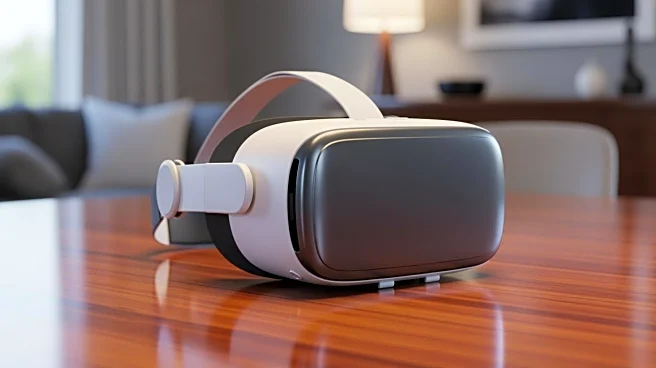What's Happening?
Rendever, the company behind the VR app MultiBrush, has received nearly $4.5 million in grant funding from the U.S. National Institutes of Health (NIH). This funding is intended to expand Rendever's elder-focused virtual reality (VR) experiences into
the home care market. The grant includes $3.8 million for the Thrive At Home Program and additional funds to develop a caregiver support network in VR. Rendever is collaborating with the University of California in Santa Barbara, RAND, and Right at Home to conduct studies on the effectiveness of VR technology in reducing social isolation and improving mental health among elders. The company is also continuing its Dementia & Empathy training program and is planning a beta pilot for its in-home VR offering in select U.S. regions.
Why It's Important?
The grant awarded to Rendever highlights the growing recognition of VR technology as a tool to address social isolation and mental health challenges among the elderly. By leveraging VR, Rendever aims to enhance the quality of life for seniors, particularly those aging in place without substantial social support. This initiative could lead to significant improvements in elder care, offering new ways to maintain social connections and mental well-being. The involvement of reputable institutions like the University of California and RAND underscores the potential impact of this technology on public health and elder care practices. As the population ages, such innovations could become integral to healthcare strategies, benefiting both individuals and the broader healthcare system.
What's Next?
Rendever plans to implement a beta pilot of its in-home VR offering in specific U.S. regions, which will test the feasibility and effectiveness of bringing VR experiences directly to elders' homes. The company is also expanding its board with the addition of Sarah Thomas, an expert in aging and a venture partner in the AgeTech industry, to guide its strategic direction. Over the next three years, Rendever aims to build a new generation of community infrastructure that fosters happiness and new relationships while driving meaningful health outcomes. The success of these initiatives could lead to broader adoption of VR in elder care, potentially influencing policy and funding decisions in the healthcare sector.














